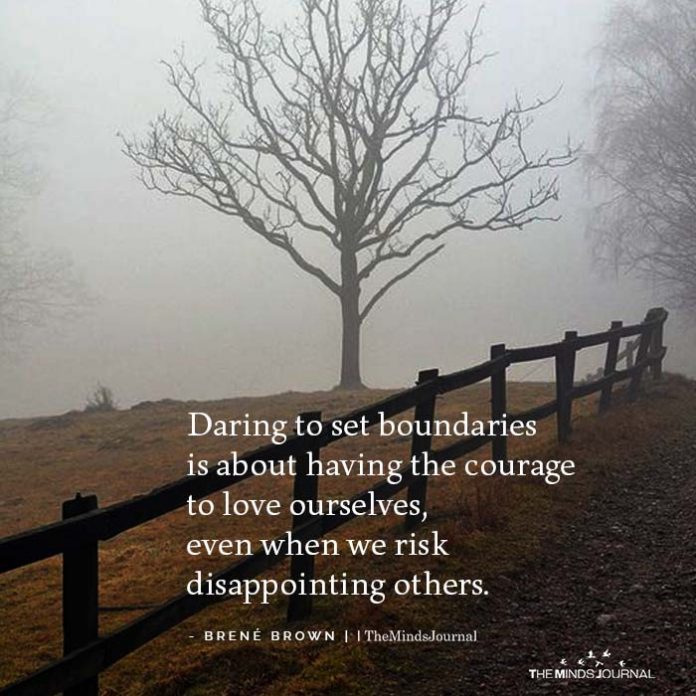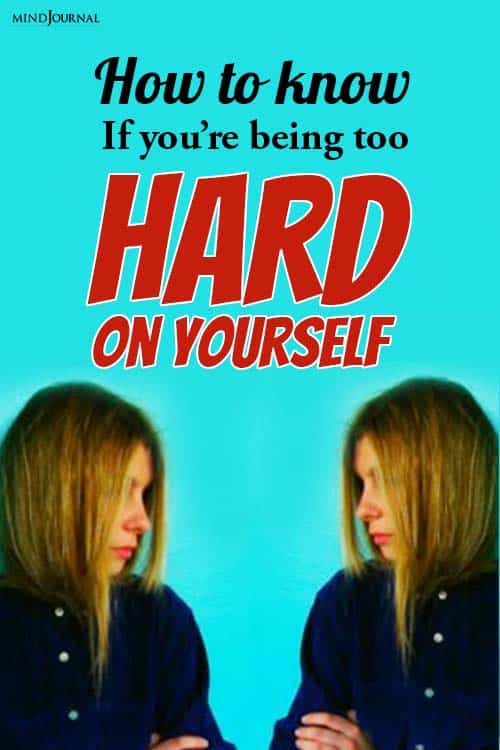Do you criticize yourself too much? A negative internal monologue can worsen your existing situation and leave you devastated. Here are questions to ask yourself to know if you are being too hard on yourself and steps to solve this problem.
Part of Kathy Caprino’s series “The Most Powerful You”
Several weeks ago, a member of my career growth course shared a question that, in six years of delivering this training, I’ve never heard quite in the same way. She asked, “Kathy, how do I know if or when I’m being too hard on myself.”
In working with this individual over a 14-week period, we’ve explored how she is engaged in what I call “perfectionistic over-functioning”—doing more than is healthy, appropriate, and necessary, trying to get an A+ in all of it, and exhausting ourselves to the bone in the process.
This perfectionistic over-functioning is something I’ve seen over and over in hundreds of smart, high-achieving women, and there are 9 clear signs of it.
9 Questions to know if you’re being too hard on yourself
To find out if you’re chronically too hard on yourself and doing too much, continually moving the goalpost so you can never feel that you’re achieving what you “should,” ask yourself:
- Are you driven every week (and exhausted, depleted, and anxious) trying to keep up with what you think you “should” be doing in your life and work?
- Do you feel lousy (and “less than”) when you compare yourself to other people, including other parents, professionals, and business owners?
- Do you act in your life (and habitually feel) as if everything is a top, urgent priority, whereas actually, only a few things truly are?
- Do you feel like no matter what you do, it’s never good or impressive enough?
- Are people in your life used to your doing too much, and you now feel it’s too hard to break that cycle, and you feel afraid to try for fear of being judged?
- Do you feel that asking for help is a sign of weakness and imperfection, and you’d rather struggle alone and try to do it all yourself?
- Do you feel empty, sad, and unfulfilled a lot of the time?
- When you stop and take the time to really think about it, are you living someone else’s definition of happiness, success, and well-being, or your own?
- Finally, do you even know what joyful and easy success looks or feels like?
Related: 10 Questions To Know If You Should Support Your Leader Or Manager
If you answered “yes” to one or more of these questions, it’s safe to say you are being too hard on yourself, and it’s not serving you. In fact, this is driven behavior—behavior that is generated from a deep-seated fear rather than from conscious choice—and it’s holding you back from a more rewarding and happy career and personal life.
This type of driven behavior and lack of self-acceptance and self-love often stems from messages and fears we developed in childhood from our parents, teachers, and authority figures, messages that we’re simply not good enough, lovable, or acceptable if we’re not “perfect” in every way.
One common phenomenon I’ve seen is when an individual grows up in a family where one of the siblings is deeply challenging or troubled in some keyway. The other sibling often goes out of their way to be the “golden” child to try to make their parents happy and create more stability and “success” in the family unit.
Sadly, that often doesn’t work. In the end, there’s one key truth that’s important to understand—you are what your childhood taught you to be unless you’ve unlearned it and healed from it.
How can you stop being so hard on yourself, and start thriving as a person and professional?
These key steps will help:
1. Get to the root of the fear
To revise a behavior we want to change, it helps to recognize just how old that pattern is and when/how we learned to behave in this way.
Just like pulling up a weed from the root allows us to clear our garden of unwanted growth, we can do the same with our thoughts by unearthing the root of the unwanted thought, fear, or behavior and learning how it was formed as a coping mechanism in the past.
We can then heal and “release” it more effectively because we recognize we’re not that same young, vulnerable person any longer who needs this coping behavior to survive or be accepted.
Related: Top 10 Reasons You Should Conquer Your Fears According to Therapists
2. Identify what true “success” means to you, authentically, then revise your behavior to enable that type of success
So many people are slaves to a particular concept of success that was unconsciously formed earlier in life and no longer makes them happy.
In my book The Most Powerful You explores the 7 most damaging power gaps that professional women face, Kendra shares her real-life story of how she became a workaholic from childhood trauma that shaped her, and how it became a cycle that destroyed her health and well-being. She shares this:
“I had carried the workaholic mindset with me into every single position as I entered the same cycle:
– I must work 40, 50, 60 + hours to prove my value and get promoted. My mindset was: if you work less than 40 hours/week you’re just average or seen as not doing your job.
– Get promoted, get a big salary bump.
– Work to the point of burnout
– Get accolades from the boss, yet feel dead inside
– Feel terrible because I’m ignoring my husband, gaining weight, not doing anything else but working, becoming one dimensional as a result
– Decide it must not be the right company/industry/product for me; find a different company/industry/product that I could “be proud of” or “gives me a sense of purpose”
– Switch jobs
– Repeat every 18 mos – 5 years
After a breakdown experience that led to a breakthrough, Kendra transformed her mindset and her life. She committed to releasing this unrelenting adherence to a type of success that was destroying her happiness.
Related: 7 Science-Backed Reasons Why Spending Time Alone Makes You More Successful
In her words:
“I realized then that I needed to think more about the possibility and to let go of my negative thinking and start to embrace optimism. It has been a challenge, but simply shifting this mindset has truly expanded my thinking. It allowed me to open myself to learning who I am and shifting my priorities. I no longer want to let life happen, but rather, make life happen.
It is this mind-shift that is helping me examine where I am out of sync with my current career and living inauthentically. I realize that I’ve checked the box on the big house and the nice car, but at my core, I am not a materialistic person. It’s my scarcity mindset that drives my need to excel fiscally in my career.
When my co-workers are bragging about their stay at the Ritz and their $150 omakase lunches, I’m internally rolling my eyes wishing I could be hiking and camping in the woods with my dog, eating a campfire meal. The fact that my current career keeps me in the company of these people and values causes friction with the fabric of my being.”
3. Finally, strengthen yourself

To build a joyful, rewarding life and career, we need strong boundaries and a secure sense of self. We must learn how to say “Yes” to what we want, and “No” to what is no longer tolerable or acceptable.
And we need to separate ourselves from people and messages that squash our authentic dreams and drain us of our life’s energy and time, that tell us we don’t deserve the thrilling lives and careers we long for.
Related: Impulse Test That Will Reveal Your Greatest Inner Strength: Quiz
In the end, we need to consciously identify what matters most to us, then access the bravery and power to defend those priorities as our lives depended on them because they do.
Written by: Kathy Caprino Originally appeared on: Forbes.com To build more authentic success and happiness in your career, read Kathy Caprino’s new book The Most Powerful You: 7 Bravery-Boosting Paths to Career Bliss.











Leave a Reply